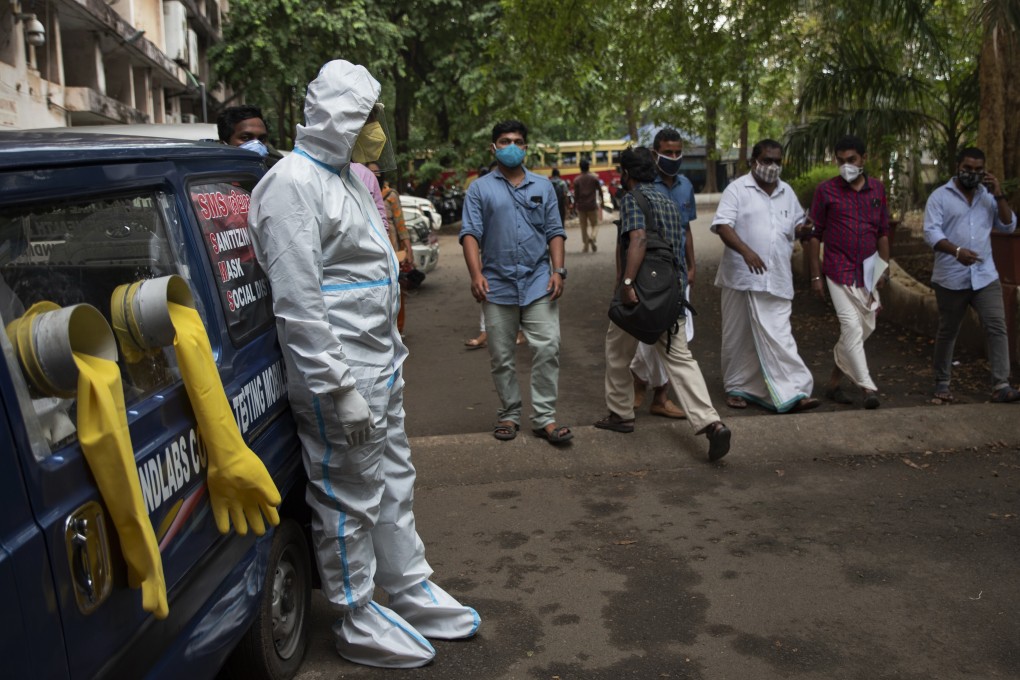India’s great coronavirus mystery: why so many cases in Kerala?
- The southern state accounts for two-thirds of new infections in India, despite having only 3 per cent of the population and a vaccination rate that, at 70 per cent, is higher than the national average
- Is it the festivals, the population density, or a lax approach to quarantine? Or perhaps Kerala is simply honest about its figures, or so good at containing the disease last time round that too few people now have antibodies?

On Sunday, Kerala recorded 29,836 cases, the highest number in eight weeks. That is 70 per cent of India’s 42,513 new cases, even though the state is home to barely 3 per cent of the 1.3 billion population. Everyone keeps waiting for the figures to plateau, only they don’t.
Experts are warning of another big jump around October, the country’s peak festival season.
In response, the government is reimposing a night curfew from Monday but critics say this is like shutting the stable door long after the horse has bolted.
Kerala’s state government has controversially allowed festivals to be celebrated, leading to large gatherings. Every festival has been followed by a spike.
Concerned at the state’s consistently high figures, the federal health secretary Rajesh Bhushan has written to the government to express his concern and suggest measures, including ramping up containment, contact-tracing and testing.